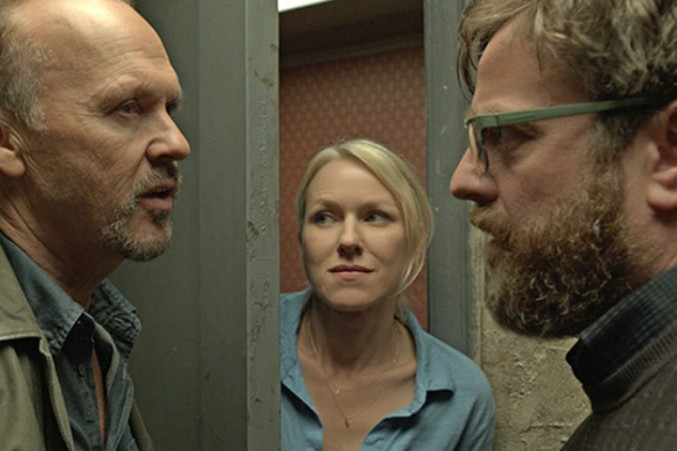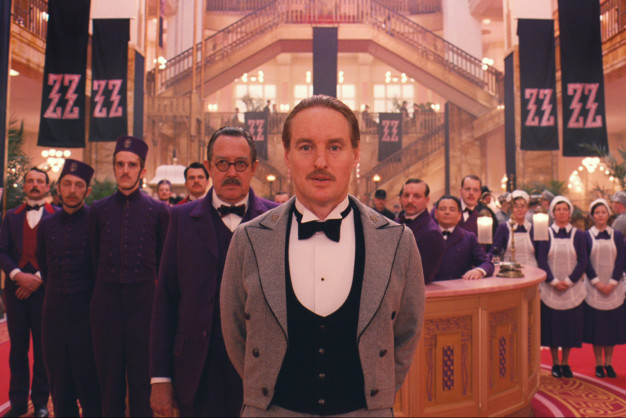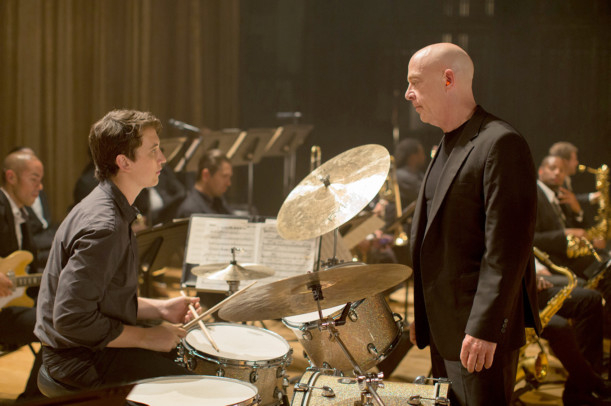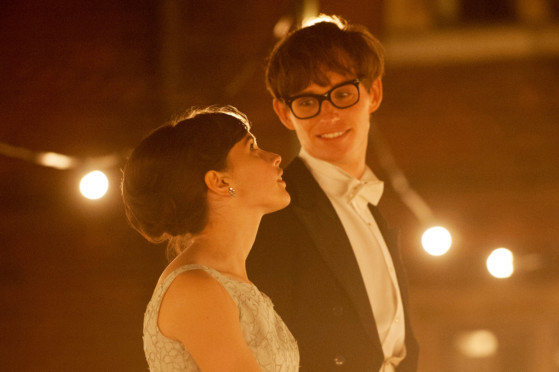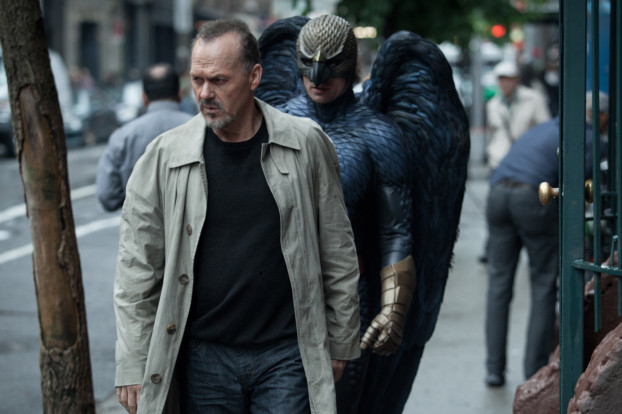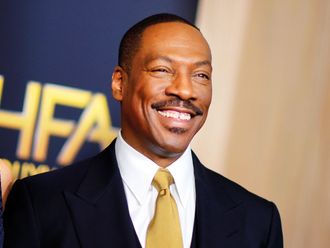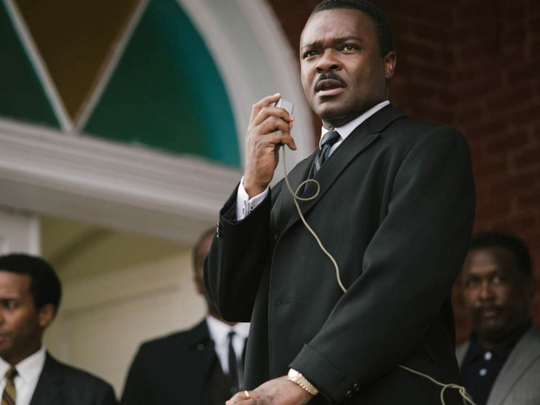
Film: Selma
Synopsis: The first major film about Martin Luther King Jr takes place in 1965 during the heated months leading up to the signing of the Voting Rights Act, when peaceful protests and marches in Alabama were met with violence and police brutality.
Total nominations: 2
Directed by: Ava DuVernay
Starring: David Oyelowo, Tom Wilkinson (two previous nominations), Tim Roth (one previous nomination), Carmen Ejogo
Why it deserves to win: DuVernay’s drama is nicely paced, beautifully shot and impeccably acted. She managed to revive the musty biopic genre with a movie that’s as focused as it is emotionally charged, and that alone could give the movie an edge. But the fact that her subject is so historically important — not to mention overlooked by Hollywood — should make Selma the obvious choice. The Academy also owes her, considering she was egregiously overlooked for a best director nomination, and David Oyelowo, who plays King, also failed to get a nod.
Why it won’t win: Although all of the historically based best picture nominees have come under fire for playing fast and loose with the facts, Selma (and American Sniper) received an inordinate amount of the backlash. The fact that the movie’s only other nomination is for best song also doesn’t help.
“Selma carries viewers along on a tide of breathtaking events so assuredly that they never drown in the details or the despair, but instead are left buoyed: The civil rights movement and its heroes aren’t artefacts from the distant past, but messengers sent on an urgent mission for today.”
Box office as of February 17: $48.4 million (Dh177 million) in the US; N/A worldwide
Film: The Grand Budapest Hotel
Synopsis: A fussy hotel concierge and his loyal lobby-boy protege embark on a series of misadventures in this fanciful fantasia set in the fictional Mittel-European state of Zubrowka.
Total nominations: 9 (picture, director, original screenplay, cinematography, editing, production design, costume design, make-up, original score)
Directed by: Wes Anderson (nominated for best director and original screenplay; sixth nomination)
Starring: Ralph Fiennes (two previous nominations), Tony Revolori, F. Murray Abraham (previous best actor winner), Adrien Brody (previous best actor winner), Saoirse Ronan (one previous nomination)
Why it deserves to win: Anderson’s film teems with delights, including his regular — and highly reliable — stable of stars; visual style out the wazoo; and a wildly entertaining narrative centring around a missing painting. It provides pure moviegoing pleasure, which is something of an anomaly in a field characterised by various forms of cinematic angst. (Even Boyhood is about the minefield of adolescence.)
Why it won’t win: The lack of narrative nutrition on the menu of The Grand Budapest Hotel is undeniable. Closer to the empty calories of candyfloss than the high-fibre content of nearly every other best picture nominee this year, the movie lacks the heft normally associated with this category. And the ensemble cast, while anchored by a glib — if somewhat robotic — Ralph Fiennes and newcomer Tony Revolori, suffers from the absence of a single strong central character that the audience can root for.
“As a carefully constructed miniaturised universe, The Grand Budapest Hotel is that most Andersonian of endeavours, evincing the deadpan drolleries, screwball action and dollhouse aesthetic that have alternately charmed and chagrined filmgoers for the past couple of decades.”
Box office as of February 17: $59.1 million in the US, $174.6 million worldwide
Film: The Imitation Game
Synopsis: Pioneering computer scientist and mathematician Alan Turing races against the clock to decipher the Nazis’ “unbreakable” Enigma code during the Second World War.
Total nominations: 8 (picture, director, actor, supporting actress, adapted screenplay, editing, production design, original score)
Directed by: Morten Tyldum (nominated for best director; first nomination)
Starring: Benedict Cumberbatch (nominated for best actor; first nomination), Keira Knightley (nominated for best supporting actress; second nomination), Matthew Goode
Why it deserves to win: An exciting fact-based thriller with the gloss of a gay-rights theme, The Imitation Game centres on the work of the eccentric Englishman Alan Turing, a closeted gay man who, during the Second World War, worked with a team of codebreakers to decipher messages from Germany that could change the course of the war. Told in flashback during the 1952 investigation that would reveal Turing’s homosexuality at a time when it was illegal, the film runs, full throttle, on two cylinders. The first is the historical nail-biter; the second is the more modern drama — made more moving by the perspective of today — about Turing’s persecution for his private life. Together, they make for a tale that is both powerful and poignant.
Why it won’t win: Like the onscreen Turing himself — who in Cumberbatch’s portrayal comes across as something of a biting, if brilliant freak — The Imitation Game is easier to admire than to love. The acting, writing and directing is irreproachable, but there’s something missing at its core. Despite effective, informative moviemaking (even for those who think they know Turing’s story well), the moviemakers bring more brains than heart to this “Game.”
“Summoning all the Sherlockian eccentricity and superciliousness he can muster, Benedict Cumberbatch once again proves the go-to man for bringing vulnerability and warmth to a chilly, slightly off-putting intellectual oddball in The Imitation Game, a handsome, if gently smoothed-over portrait of Second World War cryptanalyst Alan Turing.”
Box office as of February 17: $80.2 million in the US, $157.1 million worldwide
Film: Whiplash
Synopsis: An ambitious young drummer lands a coveted spot in his music school’s demanding jazz band, where he’s berated, humiliated and inspired by the world’s most terrifying teacher.
Total nominations: 5 (picture, supporting actor, adapted screenplay, editing, sound mixing)
Directed by: Damien Chazelle (nominated for best adapted screenplay; first nomination)
Starring: Miles Teller, JK Simmons (nominated for best supporting actor; first nomination)
Why it deserves to win: Simmons has a lock on the best supporting actor Oscar, but his portrayal of the jazz ensemble’s ferocious taskmaster isn’t the only thing Whiplash has going for it. The movie is artfully shot with shadowy cinematography and efficiently told, injecting a shocking amount of heart-pounding suspense into a movie about a school band. And while the narrative may have a limited scope, it speaks to universal themes about what we’re willing to endure — and how far we’ll go — to achieve success.
Why it won’t win: Few people have actually seen the movie. Of the best picture contenders, Whiplash has the smallest box office returns. And when it’s placed next to movies about civil rights and wartime post-traumatic stress, Whiplash’s parable of artistic aspirations feels less weighty.
“At its best, Whiplash conveys with pungent detail the striving of young people eager to make their bones in a Manhattan that’s as foul and forbidding as it is seductive. The rehearsal room where much of Whiplash transpires isn’t an Eden of harmony and collaboration, but a snake pit where every high note is awash in flop sweat and spit, blisters and blood.”
Box office as of February 17: $10.5 million in the US, $11.4 million worldwide
Film: The Theory of Everything
Synopsis: Based on the memoir of Stephen Hawking’s first wife, Jane, the drama centres on the relationship between the famous cosmologist and the woman who nursed him through his slow decline from Lou Gehrig’s disease.
Total nominations: 5 (picture, actor, actress, adapted screenplay, original score)
Directed by: James Marsh (one previous win, for best documentary feature)
Starring: Eddie Redmayne (nominated for best actor; first nomination), Felicity Jones (nominated for best actress; first nomination)
Why it deserves to win: The theme of the triumph of the human spirit over adversity makes this a natural contender for best picture. Anchored by a transformative performance by Eddie Redmayne as Hawking, and an equally moving one from Felicity Jones as his heroically stoic helpmate, Theory elevates its central love story to a higher plane. Though its name implies that this is a story about physics, it’s really about the power — and the limitations — of another unseen force: love.
Why it won’t win: Despite two Oscar-nominated performances, The Theory of Everything is no match for the tour-de-force acting at the heart of Boyhood, in which we get to watch as its central characters, a family of four, actually age over the course of the film’s 12-year production. Though otherwise impeccable, Theory suffers from a lack of topical/historical grit, plenty more of which can be found in the fact-based films American Sniper and Selma. Even the best picture category’s other British period drama (The Imitation Game) feels more vital, with its theme of gay tolerance.
“The Theory of Everything achieves its uplift by acknowledging that uplift isn’t always possible, at least in the strictest sense: It’s an exceptional film, not because of its protagonists’ impressive triumphs, but because it honours their struggle.”
Box office as of February 17: $33.3 million in the US, $98.4 million worldwide
Film: Birdman
Synopsis: A fading action movie star attempts a comeback by writing, directing and starring in a Broadway play based on Raymond Carver’s short story What We Talk About When We Talk About Love.
Total nominations: 9 (picture, actor, supporting actor, supporting actress, director, cinematography, sound editing, sound mixing, original screenplay)
Directed by: Alejandro Gonzlez Irritu (nominated for best director and best original screenplay; fifth nomination)
Starring: Michael Keaton (nominated for best actor; first nomination), Edward Norton (nominated for supporting actor; third nomination), Emma Stone (nominated for supporting actress; first nomination)
Why it deserves to win: Visually, narratively and conceptually, Birdman is the most daringly original thing to hit theatres in a long, long time. In a season of fact-based films and straight-ahead, linear dramas, Irritu’s slippery backstage investigation into the nature of truth and artifice — indeed, into the nature of storytelling itself — takes us on a pell-mell ride in which we’re never quite sure of the actuality of what we’re seeing. Only The Grand Budapest Hotel is similarly intoxicating, although Wes Anderson’s twee affectations lack the ballast of Irritu’s weighty subject matter.
Why it won’t win: The film’s surreality can be off-putting, with some viewers likely to have jumped ship early on Birdman’s narrative journey. Even for those who stick with it, the ambiguity of the film’s ending is a far cry from the neat, feel-good — or even feel-bad — endings that many of us are used to, and in fact demand. The movie’s prickly and at times obnoxious nose-thumbing at the slick and shallow proclivities of Hollywood blockbusters makes it an eccentric, perhaps even perverse, choice.
“Narcissism, ambition, insecurity and the wages of celebrity are addressed in one fell swoop in Birdman, which Irritu and his longtime cinematographer, Emmanuel Lubezki, have filmed to resemble one long, unbroken take — a stunt that results in a film of delicate, even balletic, grace and one that poetically captures Thomson’s own state of mind.”
Box office as of February 17: $36.6 million in the US, $72.2 million worldwide
Film: American Sniper
Synopsis: Based on the memoir by the late Chris Kyle, a Navy Seal sniper credited with the most confirmed kills in American military history, American Sniper focuses on Kyle’s four tours of duty in Iraq, and the impact of his dangerous job on his family back home.
Total nominations: 6 (picture, actor, film editing, sound editing, sound mixing, adapted screenplay)
Directed by: Clint Eastwood (nominated 11 times; previously won 4)
Starring: Bradley Cooper (nominated for best actor; third nomination), Sienna Miller
Why it deserves to win: Bradley Cooper, who put on 18kg of muscle — and a convincing Texas twang — to embody the late Chris Kyle, delivers a performance that is no less impressive a feat than that of The Theory of Everything’s Eddie Redmayne, who seems to waste away before our eyes. But American Sniper impresses for reasons beyond Cooper’s physical metamorphosis (and plausible handling of high-powered rifles). In this tale of a professional death-dealer, director Eastwood and screenwriter Jason Hall manage the neat trick of making a movie that honours Kyle’s work safeguarding American fighters while acknowledging its aftereffects — or at least those on the monosyllabic mountain of a man behind the trigger.
Why it won’t win: Though more nuanced than one might expect, Kyle’s story has been criticised for its one-sided portrayal of the Iraqi enemy, who are largely presented as one-dimensional figures. Nevertheless, American audiences on both ends of the political spectrum have embraced the movie, which seems to have just enough even-handedness to feed into whichever viewpoint of Kyle — hero or monster — that we enter the theatre with. Whether it’s controversial (or merely non-committal), American Sniper seems too much of a hot potato to be a shoo-in.
“The flavour of a Western is not accidental. Kyle, at one point, announces that he always wanted to be a cowboy. Maybe Eastwood does, too. Despite a couple of moments when it isn’t clear who the bad guys are and who the good guys are, American Sniper keeps its metaphorical headgear — white hats and blacks hats — very much separate.”
Box office as of February 17: $307.1 million in the US, $392.8 million worldwide
Film: Boyhood
Synopsis: A boy grows up in Texas alongside his older sister and single mother, navigating childhood, adolescence and young adulthood as well as his own divorced parents’ changing relationships.
Total nominations: 6 (picture, supporting actor, supporting actress, director, film editing, original screenplay)
Directed by: Richard Linklater (nominated for best director; fifth nomination)
Starring: Ethan Hawke (nominated for supporting actor; fourth nomination), Patricia Arquette (nominated for supporting actress; first nomination), Ellar Coltrane, Lorelei Linklater
Why it deserves to win: Linklater filmed Boyhood over the course of 12 years, shaping a fictional narrative around the real-life coming-of-age of his star, the non-professional Coltrane. The resulting film immerses the audience in a story that’s simultaneously intimate and epic, everyday and profound, as Coltrane’s character grows from child to young man in the miraculously seamless span of just over two hours. As emotionally stirring as it is ambitious, Boyhood epitomises the kind of film that Academy members like to reward, if only to remind themselves of what the medium can still achieve.
Why it won’t win: Critics fell hard for Boyhood when it opened last summer, and strong reviews helped make it an early Oscar front-runner. But not all viewers have been as charmed by its naturalistic rhythms and temperament, and it’s likely that Academy voters will be just as divided. Factor in recent guild awards raked in by Birdman, as well as such potential spoilers as American Sniper and Whiplash, and Boyhood might wind up losing its once assured first-place status.
“Boyhood breaks open a brand new genre: a fictional drama contoured and shaped by reality; a lightly scripted ensemble piece executed by both professional and non-professional actors; an experiment in time, narrative and cinematic practice that utterly transforms the boundaries of what film can look like and feel like and achieve.”
Box office as of February 17: $25.2 million in the US, $44.3 million worldwide



